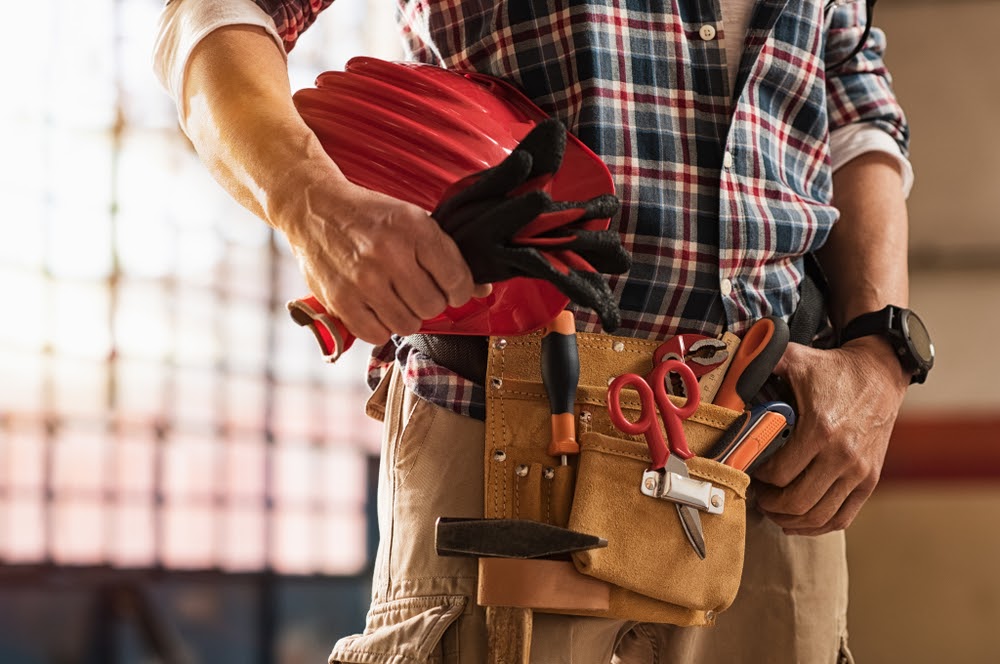You love DIY projects. Whenever something needs to be made, built, or fixed around the house, you’d much rather do the job yourself than call a professional. But in projects like this, you’re only as good as your tools. You’ve moved beyond the standard hammer, screwdriver, pliers, and wrench. What kind of tools do you need to be a real DIY pro? Here are our top 10 picks.

- Circular Saw – There are a lot of different types of saws out there, but this one is probably the most versatile. Much straighter, smoother, and more controlled than a regular handsaw, a circular saw allows you to cut wood of just about any size, from a 2×4 to a sheet of plywood, quickly and easily. With a few specialized extra blades, you can also cut through other things, such as metal, brick, granite, and more.
- Jigsaw – The circular saw is good for cutting straight. The jigsaw is good for cutting different shapes. If you need to cut out a curved piece of wood, or wood shaped in a specific pattern, a jigsaw is what you’ll use. You can also use it in a pinch to bore holes into everything from wood to metal to ceramic tile.
- Cordless Drill – This is important for putting in screws of all types, as well as drilling pilot holes. You’ll use your drill in just about every DIY project. And cordless means you can use it anywhere, without having to worry if the cord is long enough, you have enough extension cord, or if the cord will get in the way. You’ll also need as wide an array of drill bits as possible, in all different sizes and head types.
- Level – Whether you’re hanging a picture, making a cabinet, or building a new deck, you need a good, sturdy, metal level, to make sure everything is even. Many beginners use a cheap, plastic level, but a metal one is sturdier, lasts longer, and is less prone to wear and tear and other damage over time.
- Angle Grinder – Your angle grinder is one of the most versatile tools in your toolbox, and can be used for all sorts of different things. Clean rust and paint off of metal objects. Sharpen your metal tools. Cut bolts down that are too long. You can even use it to cut through stone or concrete.
- Random Orbital Sander – There are a number of different types of sanders available, from disc to belt, but the most common and most versatile is the random orbital sander. They’re fast, powerful, and can be used for most sanding jobs. They can also sand smoothly even against the grain, and eliminate swirl marks. You may decide to get more diverse and specialized sanders down the line, but the random orbital is the best one to start with.
- Nail Gun – This will replace your hammer in most jobs, particularly ones with a lot of nails to put in. Used with an air compressor, not only is your nail gun faster than a hammer, with a lot less effort, but the nails go smoother and straighter, and look much more professional.
- Impact Driver – Similar to a drill, an impact drill has more torque and multiple speeds, so it’s typically used for heavier jobs, such as fastening bolts or anchoring screws into concrete walls. It can also be used in a pinch as an impact wrench. The extra power makes it easy to over-tighten screws, though, so continue to use a regular power drill for jobs that aren’t as heavy duty.
- Router – A router is great for making smooth edges in wood. You can also use it for decorative molding, as well as intricate patterns and designs. Plus, it’s great for cutting dados: joints or trenches in a piece of wood that allows it to link together securely with another piece of wood.
- Rotary Multi-Tool – Used for more intricate and detailed work, a rotary multi-tool has a variety of different attachments for different jobs. In addition to sawing, scraping, and sanding, it can be used to polish jewelry, etch glass, carve wood, or even engrave leather. You can also use it for sharpening and cleaning other tools.
Over time, as your DIY skills grow, your tool collection will grow as well. Likewise, as your tool collection grows, your DIY skills will grow, as you become more proficient with a wider array of tools. What tools do you most want to add to your toolbox, and what projects are you looking forward to completing with them? Contact the team here at NuZum Building Supplies today!

